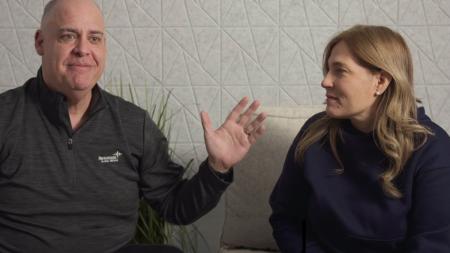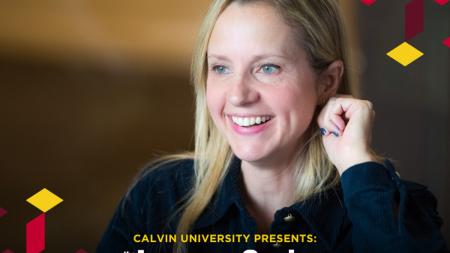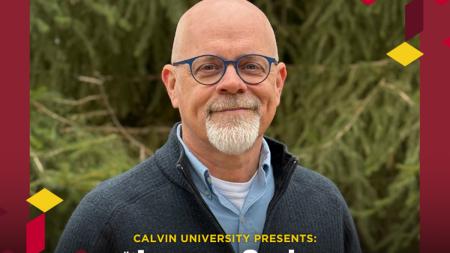Faith Is Not Faith if It Isn’t Free

All human beings, regardless of their faith or lack of it in spiritual matters, should be protected by laws as well as be fully able to practice their sincerely held convictions, legal scholar Robert George recently argued during a presentation at the January Series 2024.
George, professor of jurisprudence and director of the James Madison Program in American Ideals and Institutions at Princeton University, said this protection of religious liberty should apply whether you are a Christian, Jew, Muslim, Hindu, Buddhist, or practitioner of an Indigenous faith or another religion. It should even apply, he added, if you are an atheist or an agnostic.
Further, this protection, by definition, must come from just and reasonable laws that “elevate and ennoble the human spirit, as opposed to unjust laws that ultimately degrade the human spirit,” said George, who is also a prolific author and editor.
“I’m speaking of laws that are in line with human good and well-being and fulfillment of [one’s life] in all of its various aspects,” he said.
Running weekdays through Feb. 2 at the Calvin University Covenant Fine Arts Center, the January Series is available via streaming and at some 50 remote sites around the world. In the coming days, it will tackle subjects ranging from the autism spectrum to poverty and from medical ethics to artificial intelligence.
Laws that protect religious freedom, remarked George, stem from the conviction that belief in and exercise of one’s religious faith, or lack thereof, is a basic human right, particularly if your search for ultimate truth is sincere and personally rigorous.
“We have the opportunity and the right to decide where spiritual truth is to be most satisfyingly found,” said the legal scholar, who has served on the U.S. Commission on International Religious Freedom, the President’s Council on Bioethics, the U.S. Commission on Civil Rights, and the World Commission on the Ethics of Science and Technology.
Religious liberty, said George, arises from one’s innate ability to think, sort through, and discern truth. “We can assess the credulity of various Scriptures [and belief systems]. We use our minds to determine if something, such as the resurrection of Christ, is true.”
George also stated: “Different faith traditions have different views of what is intrinsically right in its fullest and most robust sense. It [one’s religious quest] is about what it means to be in proper relationship with the divinity, whether it is personal or not.”
To illustrate his argument, George discussed and quoted from two documents formulated and released by the Second Vatican Council, the gathering of Roman Catholic theologians and clergy that took place nearly in Rome in 1962. That council, among other things, addressed the issue of religious freedom.
The documents to which George referred were Dignitatis Humanae (“Of the Dignity of the Human Person”) and Nostra Aetate (“In Our Time”), both of which significantly expanded the views of the Catholic Church on matters dealing with the enduring value of other faiths and religious traditions.
“These documents promoted the supposition that people have religious rights even when their views fall short of what others may take to be the fullness of truth,” said George.
Among other things, Dignitatis Humanae states that religious freedom “means that all men are to be immune from coercion on the part of individuals or of social groups and of any human power, in such wise that no one is to be forced to act in a manner contrary to his own beliefs, whether privately or publicly, whether alone or in association with others, within due limits. The council further declares that the right to religious freedom has its foundation in the very dignity of the human person as this dignity is known through the revealed word of God and by reason itself.”
Meanwhile, Nostra Aetate – the briefest document produced by the Vatican Council – teaches, said George, that “it is not possible to achieve an understanding of religious liberty without . . . considering and dealing with, from the point of view of people working from a sound and rational point of view, all that is true and holy in other faiths and nonfaiths.”
Even those belief systems that don’t feature and believe, for instance, in the saving power of Jesus Christ, he added, “can ennoble and enrich a person who believes otherwise. We must respect this because human dignity requires it.”
In early November last year, the Religious Freedom Institute honored George with its 2023 Defender of Religious Freedom Award.
In his remarks at the award ceremony, he offered thoughts on how teachings in such documents as those released by the Second Vatican Council might be applied in today’s rich and widely diverse religious world.
“We come from many traditions,” George said. “We are Christians, Jews, Muslims, and people of other faiths. We are united in recognizing the importance – indeed the centrality – of spiritual concerns, and of the spiritual life, and in the recognition that the flourishing of authentic faith requires religious freedom.”
He went on to say, “Our movement has always been one in which Christians, Jews, and Muslims, along with people of the great Eastern traditions of faith, are partners and, indeed, equal partners. We must preserve our unity. We will not agree on all matters of politics . . . but our profound points of moral agreement . . . must be the glue that binds us in solidarity with each other despite our points of disagreement.”
Near the end of his talk to the Religious Freedom Institute, George said, “We fight abroad for the rights of Uyghur Muslims, Falun Gong, and Tibetan Buddhists who are persecuted by the communist regime in China; Rohingya Muslims in Myanmar; Ahmadiyya Muslims in Pakistan and Saudi Arabia; Christians in many different lands; Jews; Baha'is; Zoroastrians; Yazidis; even atheists. We defend those persecuted for their beliefs in religious matters, irrespective of the content of those beliefs.”
Speaking at the Calvin Fine Arts Center, George noted that over the centuries some religious leaders, frequently with the support of civil authorities, have turned to violence to promote themselves and to oppress and seek to destroy people who held to other systems of belief.
“Gross evil has been committed by sincere people in the name of every religion for the sake of religion,” said George. With this in mind, he went on, “Civil authorities and religious leaders must be required to respect the condition in which people engage in a religious quest [leading to various religious approaches and beliefs] reflecting their best judgments.”
As he wrapped up his January Series talk, George underscored, though, that religious freedom has its limitations, particularly when – for the sake of religious liberty – someone or a group follows unjust laws, meaning they use unjust means to achieve what they consider a just end.
“Religious freedom cannot be unlimited,” he said. “You can’t get right with God by using evil means to force others to get right with God.”
When using force, in the name of religious freedom, authorities must use the most restrictive manner possible. And the decision to do this, said George, “must be supported by a compelling state interest in preventing violence, abuse, fraud. . . . And we can agree on this because it can be settled by turning to and using common human reason.”
In other words, evil means can never justify a sincere and proper result.
In the end, said George, “Faith must be free; if not, it is not faith at all.”


